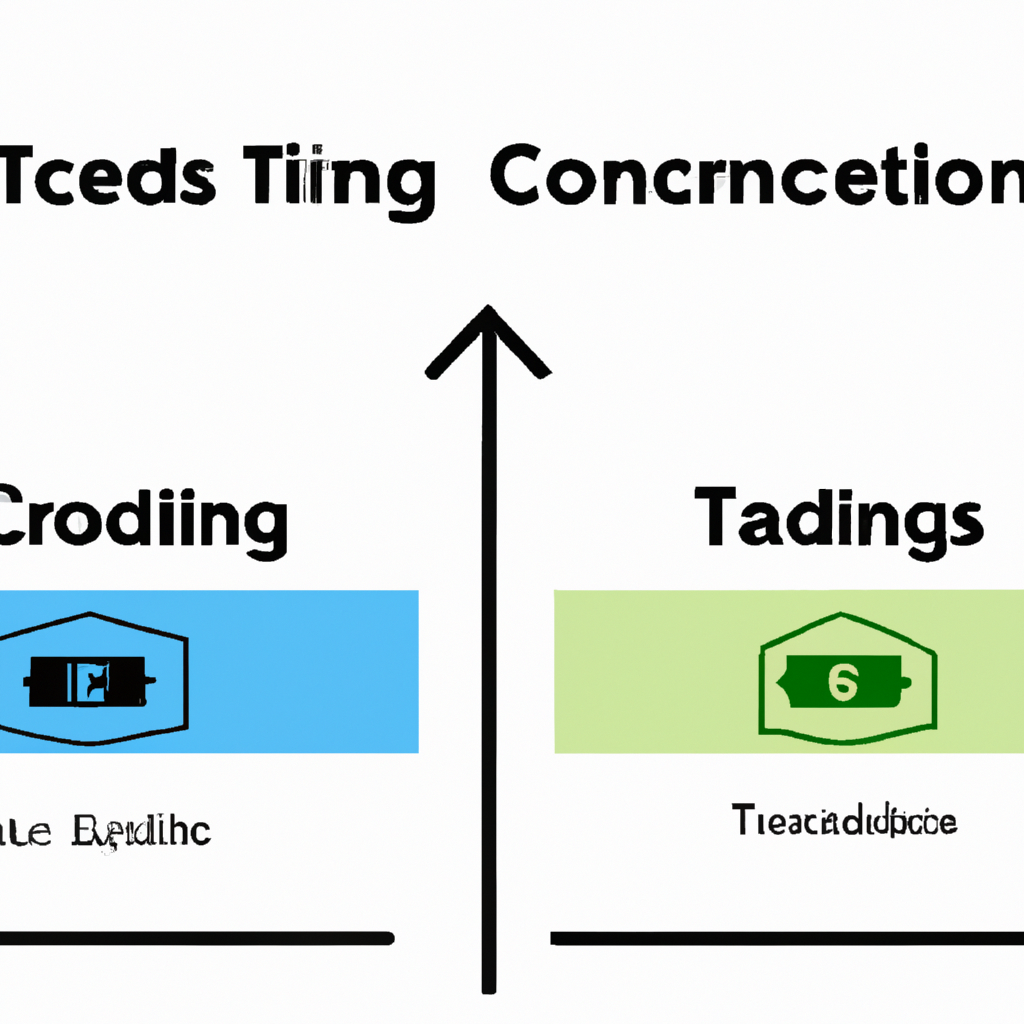Trading Fees and Commissions Comparison: Finding the Best Deal for Your Investments
When it comes to trading in the financial markets, understanding the fees and commissions associated with different platforms and brokers is crucial. These costs can significantly impact your investment returns, so it’s essential to compare and choose the best option for your trading needs. In this article, we will explore the various factors to consider when comparing trading fees and commissions, helping you make an informed decision.
1. Types of Trading Fees
Before diving into the comparison, let’s understand the different types of trading fees you may encounter:
- Commission Fees: These fees are charged on each trade you make, usually a percentage of the trade value. They can vary significantly between brokers.
- Spread: Spread refers to the difference between the buying and selling price of an asset. Some brokers charge a wider spread, effectively incorporating a fee into the trade.
- Account Maintenance Fees: Some platforms charge a fee for maintaining your trading account, typically on a monthly or annual basis.
- Inactivity Fees: Certain brokers may charge a fee if you don’t make any trades within a specific period.
- Deposit and Withdrawal Fees: These fees are associated with depositing or withdrawing funds from your trading account. They can vary depending on the payment method used.
2. Comparing Commission Fees
Commission fees are one of the most significant costs when trading. To compare commission fees effectively, consider the following:
- Percentage vs. Flat Fee: Some brokers charge a percentage of the trade value, while others have a flat fee per trade. Assess your trading volume and the average size of your trades to determine which fee structure is more cost-effective for you.
- Volume Discounts: Some brokers offer reduced commission rates for high-volume traders. If you trade frequently, explore brokers that provide volume discounts to maximize your savings.
- Additional Services: Consider the value-added services provided by brokers, such as research reports, educational resources, or customer support. These services may justify slightly higher commission fees.
3. Evaluating Spread Costs
While not explicitly labeled as a fee, the spread can significantly impact your trading costs. To compare spread costs:
- Compare Different Assets: Different brokers may offer varying spreads on specific assets. Compare the spreads for the assets you frequently trade to find the most competitive option.
- Fixed vs. Variable Spreads: Some brokers offer fixed spreads, while others have variable spreads that fluctuate with market conditions. Assess your trading strategy and preferences to determine which type suits you best.
- Consider Market Liquidity: Illiquid assets tend to have wider spreads. If you primarily trade less popular assets, ensure that the broker’s spreads are reasonable.
4. Other Fees to Consider
Aside from commission fees and spreads, keep the following fees in mind:
- Account Maintenance Fees: If a broker charges account maintenance fees, compare the costs and assess whether the provided features and services justify the expense.
- Inactivity Fees: If you don’t trade frequently, consider brokers that don’t charge inactivity fees. However, if you’re an active trader, these fees may not be a significant concern.
- Deposit and Withdrawal Fees: Compare the fees associated with depositing and withdrawing funds. Some brokers offer fee-free transactions or reimburse certain payment method fees.
5. Utilize Comparison Tools and Reviews
Finally, take advantage of online comparison tools and read reviews from other traders. These resources can provide valuable insights into the fees and commissions charged by different platforms, helping you make an informed decision.
Remember, while low fees are important, they shouldn’t be the sole factor in your decision-making process. Consider the platform’s reliability, trading features, customer support, and overall reputation alongside the fees and commissions.
By carefully comparing trading fees and commissions, you can find a platform or broker that offers competitive pricing while meeting your specific trading requirements. This research and analysis will undoubtedly contribute to your long-term trading success.

